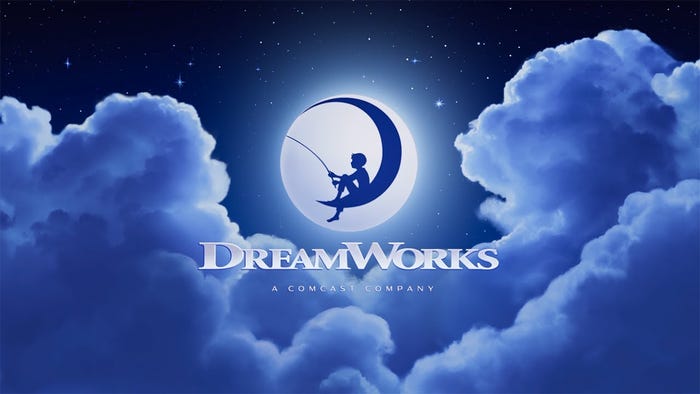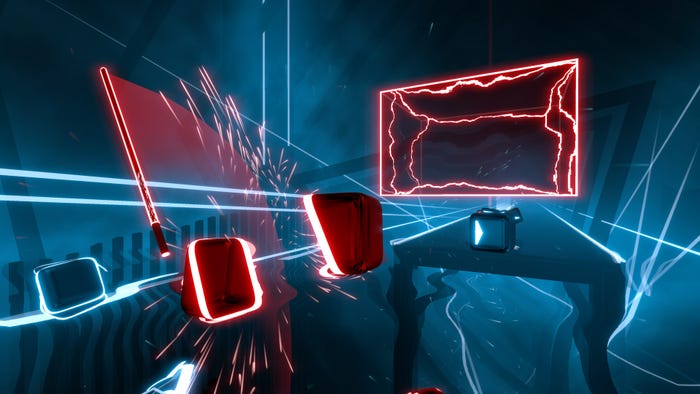
Featured Blog | This community-written post highlights the best of what the game industry has to offer. Read more like it on the Game Developer Blogs.
Postmortem of Flip, by Perro Electrico, or how can you make sure you will not make money on your game
Flip was a one man project developed in 3 months. Its development was uneventful, but launch and marketing lacked a clear objective.

Flip was the first game I made in a long time. From 2003 till 2008 I run a small development studio where we made J2ME games, but after that I was not involved directly in game development (until now). I was still in touch with the game development community, from the academic side (lecturing and researching) and as an observer, as several of my friends and acquaintances develop games. I decided to return to game development last year, I started learning Unity, and after some experiments I began working on Flip at the beginning of 2014.

Flip is a puzzle game where you must rotate pieces to make them match a proper order. If you know the "Pancakes Sorting Problem", you know what it is about (funnily, I was not aware of the pancakes problem while developing it, but the idea came to me while attempting to sort coins in the same way). The first levels are usually easy to solve, but It can get very hard in the last levels. Some people told me they find it “hardcore“, as it requires a lot of logical thinking and is very strict regarding winning conditions, and players can be put off by that.
What went right
Short development time
The game went from prototype to launch in 3 months. I worked alone and did everything by myself, except for the sounds and some unity plug-ins. It was hard work, putting sometimes 10 to 12 hours a day 6 or 7 days a week. But that meant that my budget for the game was minimal, a good thing given that I was not sure if I was not going to recover the money.
Not rushing it out
The game was virtually complete a month and a half into development, and I spent the rest of the time improving usability. I changed several times things like the tutorial, the way pieces are moved, level selection, button placement, messages, dialogs, level progression, difficulty progression and more. My main objective was to get out of the way of the player, and allow him or her to flow through the game as if it was something natural. I think the end result, even though it could always be improved, plays quite nicely and is easy to understand. Particularly rotating pieces on touch devices provides a nice experience.
Doing proper usability testing
My main way of testing consisted of going everywhere with a tablet and asking people to play. I tested it with over 40 people, and I watched them play, taking notes without intervening. I later asked them why they did some things, and tried to reach conclusions and model user behaviour. This approach proved very useful, as changes introduced after this process (specially the tutorial) made the game easier to approach by new players.
Using the right Tools
I used Unity 3D. Even though I fought a lot with it at the beginning, it provided me with easy porting and a couple third party plug-ins that saved me a lot of time, specially when they provided services across multiple platforms. For graphics I used Gimp and Inkscape. Being proficient in the later allowed me to prototype new graphical styles, and generate all kind of assorted resources at a very fast pace.
Summary: development was very successful, given the constraints.
What I learned (or... the things that went wrong that I'm aware of)
I knew from the beginning that the marketing of the game would be my weak spot. I tried to learn from other developers' experience: posts, postmortems, conference talks, conversations with colleagues. But that did not help me anyway for two reasons: first the amount of tasks required for launching and promoting a game is probably as huge and demanding as developing a small game (and remember I was doing this alone). And second, I sabotaged myself by avoiding thinking and planning things that I did not want to do. And even when I knew what to do, I procrastinated a lot.
I did not build enough awareness
After reading a lot about how important it is to build a community around your game, I failed to do so, because:
I did not use the appropriate channels. Just blogging in your own website and twittering while nobody follows you is like shouting in an empty room. I did not use forums like tigsource for letting the community know about my game, and I published only one #screenshotsaturday. I do not think these guarantee success, but they help creating awareness.
During development somebody called Flip a “nice little game”, and I think he was right. But I think that also means that for an indie game, Flip is just not sexy enough. So even when I started using the regular indie channels, it did not attract a lot of attention.
I experimented later with adwords and facebook ads, but the former was not cost effective given the low price of my game, and the second should have been used before launch.
I did not have a proper website for the game until launch, so information was only in the official Perro Electrico blog, spread among different posts. And it looks horrible.
Lastly... how much awareness can you raise in 3 months if you are not a well known developer and your concept is not hot? I never fooled myself into thinking my game was hot, but I did not act consequently.
Why is it important to raise awareness? Because if you launch and nobody knows about your game, you start with no sales, nobody talking about your game, nobody helping you spread the word.
I lacked some basic promotional assets
Some examples:
I made a 2:30 minutes video that showed a simple gameplay session. My objective with the video was that players could see what the game was about, but it was not very attractive. I would not feel comfortable showing something that is not in the game, so a teaser trailer with techno music would feel to me like lying. A friend helped me make one after launch which at least included music and some video editing, while keeping the general vibe of the game, and its repercussion was much better.
Some ideas I had for promoting the game required making custom versions of the game with changes that were not trivial, and I could not find time to make them later.
A similar problem was that I lacked an easy way for android reviewers to access all the levels without having to purchase them. I could have planned this better.
I did use pressKit(), and I always had some screenshots and the (boring) gameplay video, but I could have created much more material if I had put more thought into it.
My PR was a shame
I sent a total of 8 emails to the press, 3 to Let's players, and submitted a PR in gamespress.com. Considering that, the response I got was amazing, given that I had a short and favorable review on Rock Paper Shotgun, two mentions in smaller sites, and a couple postings of the press release (including one in gamasutra).
And my press release could have used a lot of improvement, mainly because...
I lacked clear launch objectives
I was so focused on the development and polishing of the game, that I did not stop to think clearly about what a “launch” meant to me, or even what would I launch exactly. I hacked an official website the night before publishing the game in the Google store. I created an installer for the Windows version that same day and contacted the Humble Store people for getting a Widget. I actually started contacting online stores after launch. What was I launching? “Flip”, or just “Flip for Android”? Or maybe “Flip for Android and Windows”? I just did not stop to think about this during development.
I waited some days for the PR until I could verify that the Humble Widget for the Windows version was up and running. That was actually good, as then I could get covered in RPS, a PC only site, which drove most of my sales.
This lack of a clear launch objective permeated all promotional actions.
Summary: self sabotaged, spent little effort on planning launch and marketing.
Moral choices
As other developers have already mentioned in their postmortem, mobile monetization models can be a difficult choice. I personally think that mobile stores are in a very bad shape, full of blatant clones, games that use abusive F2P practices, and applications that benefit mostly the advertising networks and not so much the developers. This makes it difficult for games to stand out.
I did not want to include ads or use a freemium model (e.g., charging for hints on how to solve a puzzle), so I decided to implement a “try before you buy” model using in-app purchases. You download the mobile version of the game and play some levels, and if you like it, upgrade to “full”. You can also try the same free version online (using the Unity Webplayer Plugin).
Using this model was actually a big motivator when it came to designing a good gameplay flow, as my reasoning was that if players could not finish the free levels because of interface or usability issues, then I was preventing them from buying the full version. But if they stopped before that because they did not like the game, then it is ok for me that they don't buy it.
This was for me as much a business choice as a moral one. In the end I cannot know if an ad-sponsored game would have made me more money, specially such a specific niche game, but I prefer to have a clear conscience.
Final words
Was the game a success or failure? I am sure that I will not recover my costs, so commercially it is a failure. But I am very proud about both what I accomplished, and the things I learned. Career wise, it is probably a success.
The main lesson was one I already knew: working alone in a game is not the best, as you can overlook huge aspects (like the marketing and business side) and nobody else will be watching and reminding you of them. For my next game I'm already planning a collaboration, and adding all that I learned from Flip, I bet it will do much better.
Read more about:
Featured BlogsAbout the Author(s)
You May Also Like













